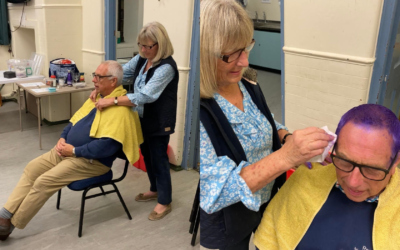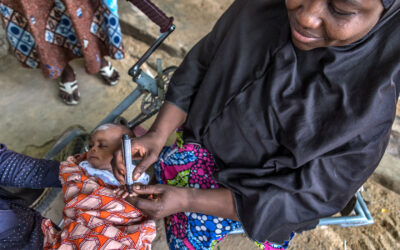The Taliban are in negotiations with the World Health Organization (WHO) in a bid to set Afghanistan’s children free from the chains of polio.
Discussions are taking place in Doha, Qatar, according to Michel Zaffran, WHO’s Director of Polio Eradication, speaking at an End Polio Now event at the Palace of Westminster, which was attended by Rotary International President, Mark Maloney.
According to the latest WHO figures from February 26th, two new cases of children with the wild polio virus have been reported in Afghanistan, with four more cases in neighbouring Pakistan – the last two countries on earth where polio is prevalent.
How do @Rotary volunteers support #EndPolio? They raise funds, join health workers distributing vaccines in the field, and even advocate with local government leadership. Learn what this looks like in Pakistan: https://t.co/HAy4EVe8pp pic.twitter.com/qfU7aJ1hE6
— EndPolioNow (@EndPolioNow) February 21, 2020
That brings the tally to 23 new cases in 2020 – two in Afghanistan and 21 in Pakistan, compared to 173 in 2019, with 29 of those from Afghanistan.
On February 29th, the United States and the Taliban signed an historic peace deal.
Although the Afghan government is not a signatory, they are expected to hold talks with the militants which will see the US and its NATO allies withdrawing all troops from the country within 14 months if the militants uphold the deal.
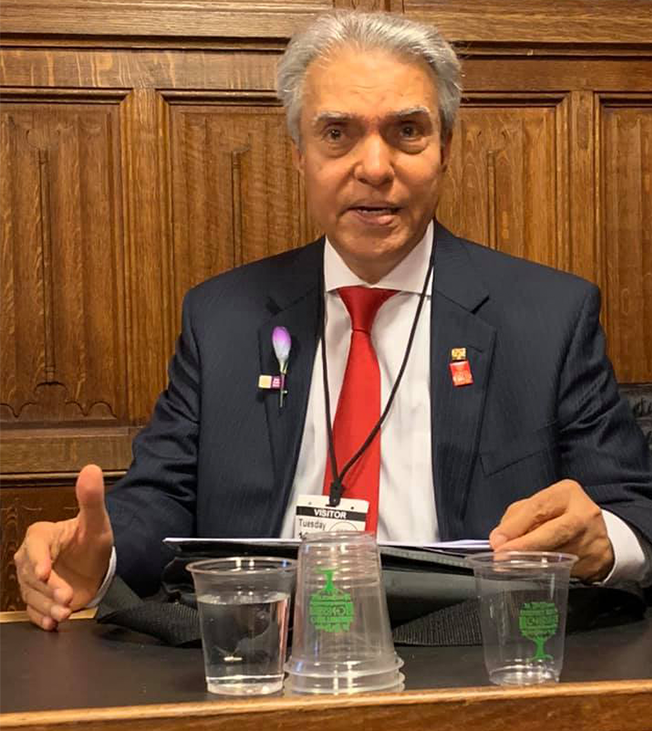

Aziz Memon – Pakistan National Polio Plus Committee Chairman and Rotary Trustee.
Michel Zaffran told Rotarians and key polio campaigners at Westminster how the peace remained fragile, but suggested that here was a window of opportunity to wipe out polio from this terror-torn country.
“Unfortunately for the last year and a half, the Taliban has put a ban on all house-to-house vaccinations campaigns when we need to reach every child in Afghanistan,” explained Michel.
“It’s not an anti-polio drive. It’s more because of the political situation and the fight with US forces.
“They have correlated the drone attacks on their commanders with the visits of vaccination teams. So the Taliban have decided no more vaccinations, which has been very difficult for the programme.”
However, Michel Zaffran warned that Afghanistan was a polio tinderbox. Though few cases of polio paralysis had been reported, large numbers of children remained unvaccinated.
“When the virus comes into some of these areas, we will probably have explosive outbreaks because of the poor immunity,” he suggested.
“But I am pretty confident that if Pakistan gets its act together, then doing the job in Afghanistan is not going to be impossible.
We are ready. We have got a plan for the polio programme to launch the minute we are told that our vaccinators are going to be safe, you can go ahead and vaccinate.”
“The Taliban are pro-vaccination. The peace negotiations are complicated, but if we are able to get to a point where there are no longer drone attacks on the Taliban, they will be open to vaccination.
“There is on-going negotiation by the programme with the Taliban. We actually meet with them at a pretty high level in Doha to ensure that at some point there will be an opening.
“The Taliban have lifted the ban, but some tribal chiefs are not totally in favour of full vaccination.
“We are ready. We have got a plan for the polio programme to launch the minute we are told that our vaccinators are going to be safe, you can go ahead and vaccinate.”
https://twitter.com/EndPolioNow/status/1225014957496061953
Aziz Memon, Chair of Pakistan’s PolioPlus Committee and also a Rotary Foundation trustee, admitted that 2019 was a disastrous year in Pakistan because of a lack of security in the Federally Administered Tribal Area on the border with Afghanistan.
But now the polio programme was receiving the full support of the Army and Prime Minister, Imran Khan, he disclosed that 40 million children were recently vaccinated in Pakistan in two swathes of intensive polio vaccinations.
“These have been more than satisfactory, and our teams have been able to reach all parts of Pakistan, with the help of the Army,” said Aziz. “We hope we will be able to control the outbreak in 2020, and we are determined to move forward.
https://twitter.com/EndPolioNow/status/1215961571450675211
“But we need peace. After the memorandum of understanding was issued in Afghanistan last month, they started killing again. Some sense has to prevail.”
Tragically, 192 polio vaccinators have been killed in Pakistan by fundamentalist gunmen in recent years – 75% of them women. The most recent victims were women aged 23 and 27-years-old.
But besides security, Aziz Memon, admitted that Pakistan’s other biggest challenge was social media. “Social media has created a disaster,” he insisted.
Tragically, 192 polio vaccinators have been killed in Pakistan by fundamentalist gunmen in recent years – 75% of them women. The most recent victims were women aged 23 and 27-years-old.”
“We are not just fighting the terrorists, but we are also fighting Facebook, WhatsApp and a variety of social media. Good news never goes out, the bad news spreads like wildfire.”
The Pakistan polio chief said that national media was on their side. They have also had discussions with Facebook which has since de-listed 500 accounts which were spreading malicious and false rumours about the polio campaign.
With the messaging platform WhatsApp, their best way of countering the threat was to push out positive messages to counter the negatives, he insisted.
Vaccination with #twodrops of polio vaccine secures your child from a lifetime of disease and disability. Your child’s future is in your hands. #VaccinatetoEradicate 🇵🇰
WhatsApp Polio Helpline ✉: 0346-7776546
Sehat Tahaffuz Helpline 📞: 1166 pic.twitter.com/DdOg7d7oR0
— Pak Fights Polio (@PakFightsPolio) March 10, 2020
While culture and an element of polio denial remains at the core of the battle, Aziz Memon and Pakistan polio officials held talks with 145 religious leaders in Bannu at the weekend, which were positive, he said.
“We need to overcome the negativity,” added Aziz. “We are trying our best, and we hope to have good news that polio will be taken care of.
“We have a challenge to overcome. We hope that by July 2020 we should be able to stop the transmission of the outbreak from last year.
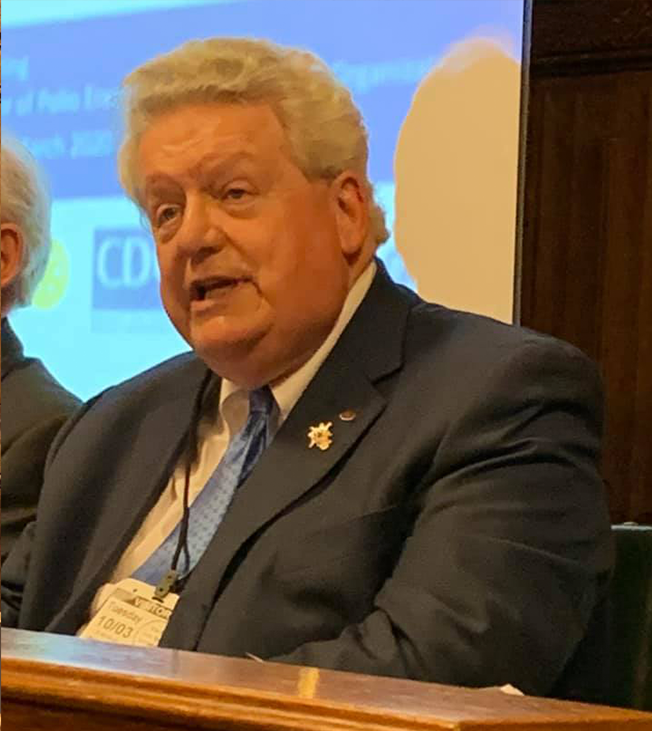

At the Westminster gathering, Rotary President, Mark Maloney said that Rotary owes it to the children of the world to finish the job.
“We then want to move forward so that, by 2023, we can fulfil the promise we made to the children of the world that they should live in a polio-free environment.”
At the Westminster gathering, Rotary President, Mark Maloney said that Rotary owes it to the children of the world to finish the job.
He also praised the role of the U.K. Government which has funded the Global Polio Eradication Initiative to the tune of $1.6 billion.
“I want to thank to Government of the United Kingdom for their commitment to eradicate polio, both in terms of financial support and advocacy,” he said.
“In terms of governments, the Government of the United Kingdom has contributed at the highest level, second only to the United States.
“Last month, Rotary celebrated its 115th birthday. And when we look forward to the next 115 years, we can envision nothing bigger than the job which is in front of us right now, by ending polio forever.
“That is our number one priority of our organisation and we must finish the job.
“Our efforts to end polio has been like running a marathon, and right now we are in the final leg.
“But the final leg of any journey is often the most difficult. So we have to work harder than ever to eliminate the wild polio virus in Afghanistan and Pakistan – two of the most difficult countries in the world to deliver health care.
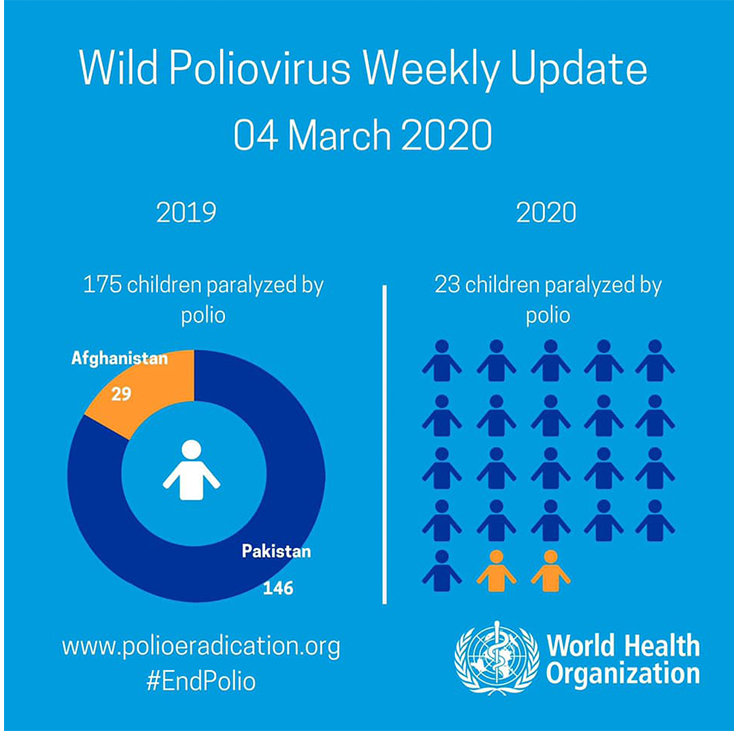

World Health Organization statistics on Wild Poliovirus
“We must continue to reach every single child with the polio vaccine.
“But even after we stop transmission of the virus, we must remember that our work is not done. It will take at least three years of no new cases in a person, or in the environment, before the world can be certified polio-free.
“None of us know for certain when that last case of polio will be reported. Polio has been with humans since at least 1580 BC, it’s about to go away and that is an incredible thought.”
Minister of State for the Commonwealth and South Asia, Lord Ahmad, passed on the thanks of Prime Minister, Boris Johnson for the incredible work which Rotarians do around the world.
Lord Ahmad, whose mother is from Jodhpur and whose father was born in the Punjab, said he identified with the issues of polio and the challenges faced.
We must continue to reach every single child with the polio vaccine.”
“It is regrettable there are some who take the notion of eradication as meaning some kind of intervention from the west, which is being taken in a negative way,” he said.
“Unfortunately, because of the issues of a lack of literacy, which is why I totally subscribe to the need to invest in education, particularly girls’ education, we have to ensure the education element is part and parcel of the eradication of polio around the world.
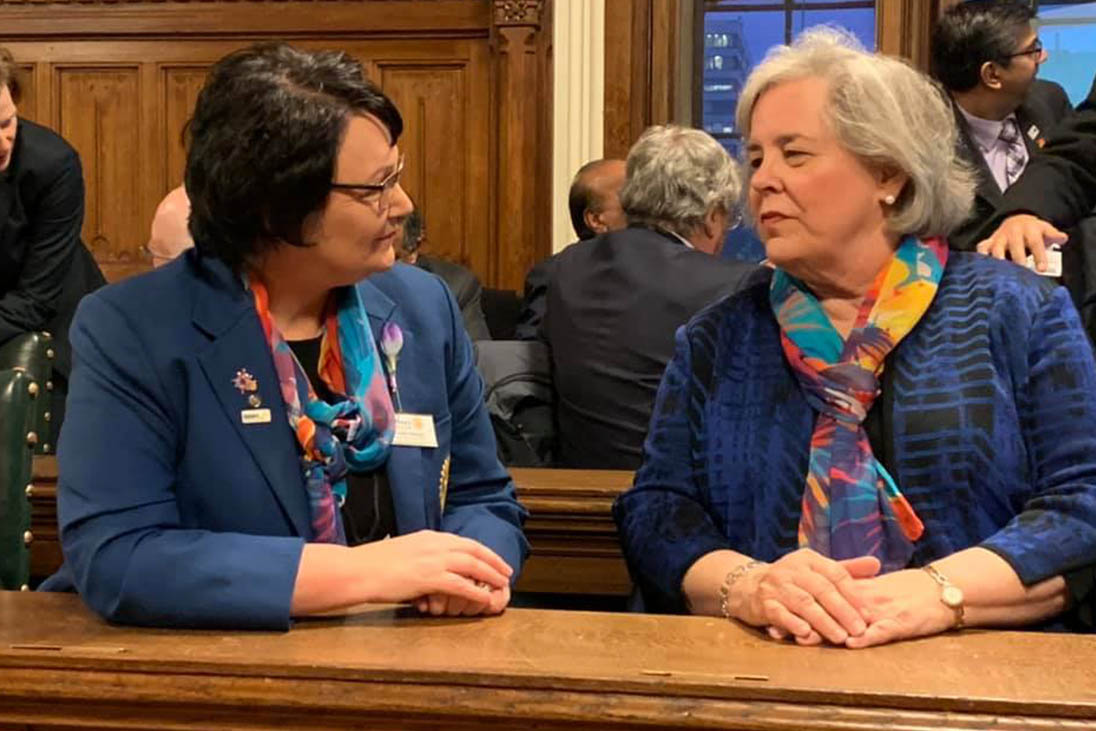

Even after we stop transmission of the virus, we must remember that our work is not done. It will take at least three years of no new cases in a person, or in the environment, before the world can be certified polio-free.
“Nowhere is that more pertinent than in parts Pakistan and, indeed, Afghanistan. Education is going to be fundamental to ensure we deliver on that objective.”
Pakistan remains one of the last two strongholds of the polio virus – the other is Afghanistan.
Michel Zaffran revealed that with a new polio vaccine being made available this summer, he believed the world now had the tools to finish the job.
Though he acknowledged that in some parts of Pakistan, religious leaders were using polio and the vaccinations as political leverage. “They are using polio as a protest,” added Michel.
Judith Diment, who is on Rotary International’s PolioPlus Committee and Chair of the Polio Advocacy Task Force, said that giving up and failure were not options.
Quoting the American medical researcher, Jonas Salk, she told the gathering: “There is no such thing as failure, just giving up too soon.”









